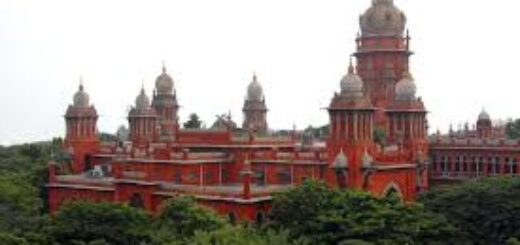Justice Dipankar Datta’s dissenting opinion expresses concern about the recent trend in the judiciary to abandon traditional practices in favor of progress and constitutional change.

Justice Dipankar Datta, in his dissenting opinion, expressed concern about the current judicial trend of rejecting traditional views in favor of progress and constitutional change. A seven-judge Constitution Bench of the Supreme Court overturned its 1967 ruling in S Azeez Basha v. Union of India, which stated that Aligarh Muslim University (AMU) is not a minority institution, with a majority of 4:3. Justice Datta pointed out that the judges did not have a “meeting of minds” and that there was no “physical or virtual meeting” after the judgment was reserved. He believed this lack of discussion hindered meaningful dialogue, which is crucial for addressing differing opinions and fostering a “democratic spirit” in constitutional interpretation.
In his dissent, Justice Dipankar Datta remarked that while Supreme Court judges are the final decision-makers in disputes, the trend of dismissing established views for the sake of progress is troubling. He noted that judges sometimes overlook their own limitations and must be guided by constitutional values and the intentions of the Constitution’s creators. The majority opinion was held by Chief Justice D.Y. Chandrachud, Justice Sanjiv Khanna, Justice J.B. Pardiwala, and Justice Manoj Misra, while Justice Surya Kant, Justice Dipankar Datta, and Justice Satish Chandra Sharma dissented.
Justice Dipankar Datta began his dissenting opinion by stating, “The past refuses to lie buried,” highlighting the relevance of this case. He referenced the Union of India v. Tulsiram Patel (1985) to emphasize the need for “collegial consultation among judges.” Justice Datta mentioned the difficulties he faced in drafting his dissent under a “race against time,” similar to the time pressures experienced by Justice M.P. Thakkar in Tulsiram Patel. In the case of Azeez Basha, the Supreme Court ruled that for an institution to be recognized as a minority institution under Article 30(1) of the Constitution, it must be both “established and administered by the minority community.” The Court interpreted Article 30(1) in a way that these rights must be exercised together. Therefore, if a religious minority did not establish an educational institution, that community cannot claim the right to manage it under Article 30(1). This ruling determined that AMU did not qualify as a minority institution since it was neither established nor managed by a minority community.
Justice Datta’s dissent highlighted that “no one can claim with certainty that all the dialogue, correspondence, incidents, and events leading to the establishment of AMU have been presented to us with complete accuracy. Given this situation, we should not replace historical facts with our interpretation of incomplete evidence.” He also noted, “Altering the understanding of a Constitutional provision, which has remained consistent and proven over time, under the guise of interpretation and overturning established precedents, has become too common due to judicial activism in recent decades.”
We should avoid this approach unless absolutely necessary and let the people’s will and the Constitution take precedence. Justice Datta noted that before India’s independence, regardless of whether someone was a Hindu, Sikh, Muslim, Christian, Jain, Buddhist, or Zoroastrian, everyone lived under colonial rule with limited freedom. He stated that the idea of a minority did not exist back then, and claiming that AMU is a minority institution based solely on its establishment by a minority group contradicts Article 30 and could be deemed invalid. The Court should not create new criteria without considering all relevant factors, especially since previous benches, including larger ones, have dismissed this issue.
The Judge emphasized that rewriting history over a century later through judicial opinions is not the role of judges. Furthermore, in cases like this, it is not justified to suggest that past judges were wrong and that the current judges are right. Judicial respect should favor the interpretation of Article 30(1) that has been upheld for nearly 75 years since the Constitution was established. Therefore, the Judge concluded that according to clause (5) of Article 145, the references do not need a response, and it is declared that AMU is not a minority educational institution, meaning the appeals for its minority status should be rejected.
Cause Title: Aligarh Muslim University v. Naresh Agarwal & Ors. (Neutral Citation: 2024 INSC 856)








